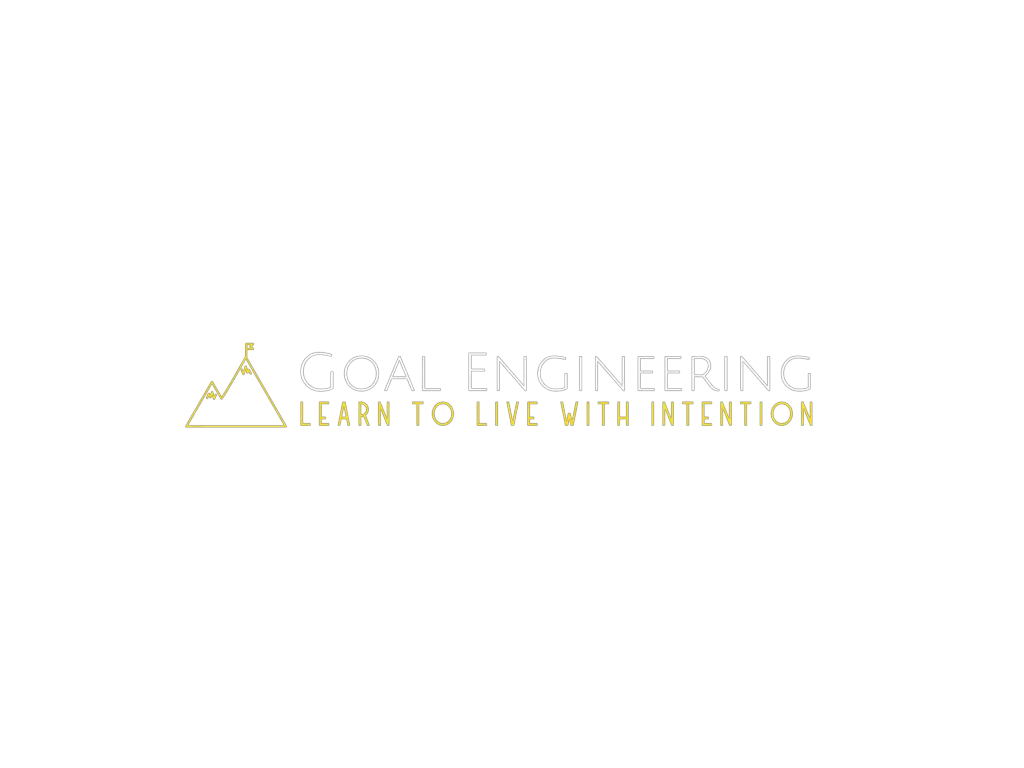This week I got my diploma for my master’s degree in the mail. As I opened the package, it hit me that I’ve now finished 20 years of school. That’s a lot of time sitting in classrooms, doing homework, taking tests, and learning how not to do well. I wish that I’d known how to set good goals for school each year because I probably would have done a lot better!
Here are some of the goals that I might set for school if I could go back:
- Join a study group
- Sit in the front row
- Go to office hours each week
- Review lectures immediately after class
- Make new friends in each class
- Manage stress levels
- Take classes that I enjoy
- Learn for the love of learning and not for grades
Each of these are good goals, but you want to have the best ones that will have the biggest impact on your success. There are only three that I would focus on because they take care of almost all the others.
1. Join a Study Group
I wasn’t very good at this throughout my two decades in school. After considering its benefits, however, I’m certain I would have done much better, and had a lot more fun if I had.
The main reason I love the idea of study groups is that it fulfills three vital requirements for success:
- Allocates time to study and keeps you committed to it because you have accountability partners.
- Provides social interaction, which you’ll see the importance of in a moment.
- Helps you manage stress because it helps you connect with others and study longer and more efficiently.
So not only will joining or creating a study group help you get better grades, but it will also help you find new friends, too. We’ll see the benefit of that in a moment.
But also consider the health benefits of managing stress. According to research, it helps you sleep well, manage your weight, and maintain a better mood, among many other benefits. All of those things will make you do even better in school and have a better social life, too!
How I’d Accomplish It
I know how hard it can be to reach out to talk to new people. Let alone organize a study group! There were a lot of introverts in my Civil Engineering major, which made it difficult to talk to others. But this goal is worth pursuing.
If I were starting over and had just set this goal for myself, I would start by observing the class in the first couple of lectures. I’d look for people that were smarter than me and a few that weren’t.
The reason for this is that the smarter person can help you when you don’t understand, and those who don’t know as much give you a chance to reinforce your knowledge by helping them.
After getting an idea of at least a few people in each category, I’d start introducing myself and asking if they wanted to study together. I might begin a Slack group to make it easier to connect.
Another way you could do this is by using the messaging boards on whatever system your university uses to access class material online. You could just send a message to everyone asking who wanted to study together if you wanted to make it as easy as possible.
2. Make New Friends in Each Class
In The Happiness Advantage, author Shawn Achor tells of two girls who were in rigorous programs at a prestigious university who had very different experiences based on the level of social interaction they had.
One girl felt that she had to put her head down and study all the time. She declined almost all invitations to social events. Her main focus of studying as much as possible made her a hermit.
The other young woman did the opposite. She spent most of her time working hard, but when she got invited to something fun, she said yes as often as she could. Participating in dorm and college activities was normal for her and she made a lot of new friends.
Who do you think made it through the first semester? If you’d guessed the first girl, you’d be wrong! She failed because she lacked balance and didn’t take advantage of the massive potential within social connections.
If you want to succeed in school, make friends. If you want to fail, only focus on yourself.
This point is so important that Shawn Achor wrote an entire book about it as his follow up to The Happiness Advantage. It’s called Big Potential, and you can read my summary of it here.
How I’d Accomplish It
Making new friends sounds simple enough. But when it comes time to actually make it happen it’s not so easy. I would start small by challenging myself to talk to just one new person each week.
To make it easier, I’d first try sitting in a different spot every class period. I also love having a list of question in my head to ask every time I meet a new person. Don’t be robotic about it, but consider asking some of the following questions each time you meet someone:
- Where are you from?
- Did you do any extracurricular activities in high school?
- What do you like to do for fun?
- What other classes are you taking?
Remember to listen and use follow up questions to keep the conversation going. You’ll know when you meet someone who will be a good friend because you’ll sort of just “click.” Once that happens, the rest will just come naturally.
Don’t give up if it takes time or feels awkward at first. The benefits of having friends are too huge to miss out on!
3. Take Classes And Major In Something That I Enjoy
I didn’t do as well as I had hoped in my undergraduate degree. When it came time to get into my first real job after college, I struggled to enjoy what I was doing. I did work hard to learn and get good at what I did. But my heart was never in it, no matter how much I tried to make it happen.
In the last couple of years, I’ve transitioned into a career that is much more suited to my strengths and passions. I naturally work harder, get work done faster, and I’m happier. There’s no resistance to those things because my work is aligned with my heart.
If I’d had these same benefits when going to school, I would have gotten much better grades. But school isn’t all about getting straight A’s. In fact, that doesn’t even do much for you these days other than make you a good office worker, which isn’t all that great anyway.
The benefit I wish I could have had here was to learn for the sake of learning. One of my professors called this “deep learning” and tried to teach us how to manufacture it. I don’t think it works that way though.
I believe, based on my experience, that deep learning only comes when you choose to take classes that you’re actually interested in. You can’t force it if you’re majoring in something that everybody says is a good field to go into but that you don’t really like.
Learning comes naturally when you align your major with your passions and strengths. This is why, of all these goals for school, this one is my favorite.
How I’d Accomplish It
It would be easy for me to just say “pick a major you love” but I know how much pressure you get to choose something more “practical.” Not only that, but if your university was anything like mine, it was hard to change majors if you didn’t like what you were doing!
It really isn’t fair that they give you only a couple of years to decide what you’ll be doing for the next 30 or more. But as with anything, you can choose to be more intentional about it than just doing what everyone else wants you to.
If You’re Just Beginning School
This will be easiest for those just starting college. If this is where you’re at, get to know yourself better.
Write out all the jobs you’ve had and what you liked and hated about each. What common threads do you see? Look for majors that align with those things. If you had a favorite job, consider going into a field that would let you do more of that kind of work.
It also helps to get to know and spend a lot of time with people who have the career you’re considering. If you can see firsthand what the work is like, it will be easy to know if you’d be happy with it or not.
This is so important that if I could go back, I would take one less class each semester for my first two years of college and spend that time looking for carreers that I would enjoy. It’s not fair that this isn’t already built into the system, but you can make it happen.
You can look for internships if you want, and some might succeed there. If I could go back I would instead ask my parents, siblings, friends, and neighbors who they knew who was in that field already. The mutual connection would make it easier to reach out.
When it came time to talk with the person, I’d ask if I could work for free in exchange for some information on what the work is like. Be sensitive to busy seasons though and always make sure to be a blessing and not a burden on people.
I would try this with at least five different careers to see what I liked and didn’t. It will help to start with what you think you might already be interested in and explore a few “just for fun” options.
If You’re Almost Done With School
For those a little further in school, first find out if you can change your major. My wife tried when she had a lot of credits and it was pretty difficult. You need to know if you can’t change or if you can still take a few more credits before deciding.
For those who can’t change majors, don’t let this stop you from exploring other careers. Remember that for many jobs, you don’t need a degree in that field to get into it. You just need the right skills, which you might already have!
My experience is the perfect example of this. I wrote a whole post about how it all happened, but long story short, I now make more money writing than I do with Civil Engineering even though I have an engineering degree. And it was all because I got to know myself, skills and strengths, better, and started exploring careers that let me use those.
If you do have a little bit of time but feel panicked about what you’re currently majoring in, take a break from school! It wouldn’t be that hard to take a semester off to just work and explore your options. And think about the effects in the long run.
If you find that your current field of study is still good for you but that the classes are just hard right now, you only push your graduation back by a few months at most. And if you find something that you can really put your heart into, you’ll be glad to be spending 30 plus years in a career in it instead of in something you hate!
For what to do during this time off, pretend you were just starting school again and look back at that section above for ideas.
What Will Your Goals For School Be?
Whether you’re a freshman or about to graduate, it’s important to have goals for school if you want to succeed. I wish I had set more when I was in school because if I had, I probably would have done a lot better!
Setting goals like taking classes you enjoy, making new friends, and joining a study group will do much more than just help you get good grades. These can allow you to manage stress, have a social life, and make college a time of preparation for living the life of your dreams when you finish.
Consider which would be best for you, write it down, make a plan to accomplish it, and soon you’ll be happier and more successful in school than ever!





